#British social hierarchy
Explore tagged Tumblr posts
Text

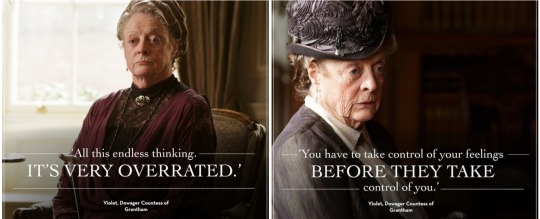

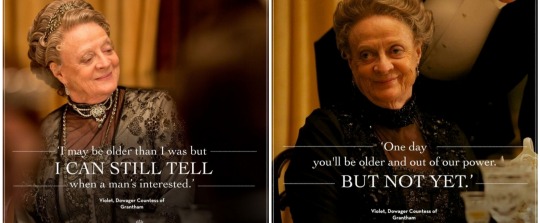
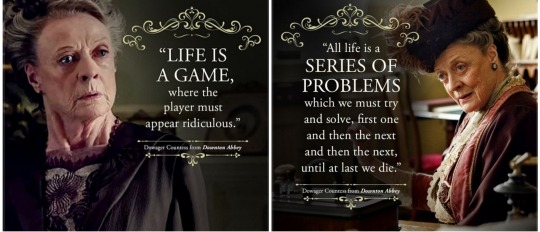


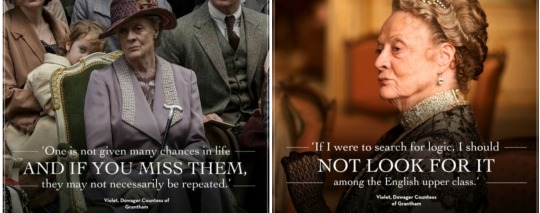
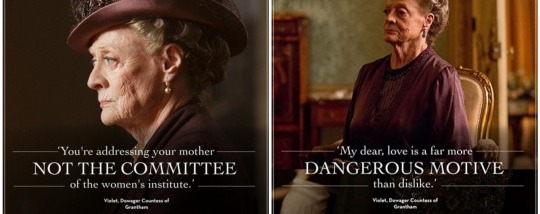
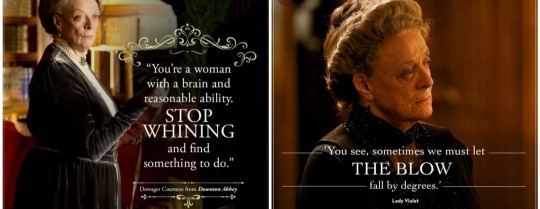
Violet Crawley, Dowager Countess of Grantham (1842 - 1928)
Downton Abbey (2010 - 2015)
#Dowager Countess Violet Crawley#Downton Abbey#Highclere Castle#1900s#20th century#Violet Crawley#Dowager Countess of Grantham#historical drama#television series#Julian Fellowes#ITV#British social hierarchy#Edwardian era#PBS#costume drama#Maggie Smith#Downton Abbey quotes#quotes
98 notes
·
View notes
Text
some more horse guy fashions, specifically historical

erased the mandolin for this one goodbye mandolin i couldn't be bothered drawing you
so my thought process for this is like what would a society of, lbr, british ppl who are horses value and how would that translate into what they wear if they specifically don't have a taboo against nudity. these fashions are pre-florian conversion (florian was the guy who gave them all government-mandated shame) and considered traditional (the full coverage dresses are also traditional but to a post-florian period so those would be called like. idk. classical). they were still in use in the enclaves north of ironwall for quite a while. anyway returning to the point, the answer to 'what they value' is movement. in actual horses, herd hierarchy and social function is based off movement - free movement for animals for whom the flight response is so strong is an incredibly important thing. dominance in horses is expressed and reinforced by controlling and curtailing the movement of subordinates. for these people, free movement was enhanced by kinetic fashion - free-flowing garments like capes, loosely-pinned headgear with feathers and floaty cloth, and noise-generating devices like bells and chimes were all used to elaborate and enhance the appearance of somebody's gait. the overall look was mostly based off of morris dancers (pheasant feathers, bells on the legs, handkerchiefs) because i like the tie-in to suppression of folk dance by puritans. i think these guys would have some great folk dances
in much the same way trainers are just normal everyday footwear now, game kerchiefs/flags were worn in non-sports contexts because it suffused into the mainstream and became Cool. the flags were used in a game similar to tag rugby if you've ever seen that played (where snatching people's flags is used instead of full contact tackling, forcing someone who's been 'tagged' to stand still until the flags are returned). as i said before somewhere, centaur team sports go incredibly hard.
the tail ornaments were status symbols and in appearance a bit like the traditional show turnout of shire horses. woven grass and straw could be used for a temporary ornament like these, but metal or carved wood were really impressive, and very common gifts of favour between romantic partners. more flags could be hung there if you wanted to be really cool

variations of this style of mane décor were also employed (they loved their ribbons)

in the same time period, Ironwall fashion was a little bit different. These expensive caparisons were usually purchased secondhand after a real horse was done wearing them, with distinct front and back halves of different length. The garments would usually have the original liveries removed and replaced by generic religious iconography as few centaurs would ever have their own heraldry. Later, in the Georgian and Victorian eras, full coverage to the pasterns with a single undergarment was the only acceptable option (that's the classical style now) The rest of the picture is self-evident, but centaurs at the time wore additional... equipment on the withers which were called a variety of very colourful names but mostly referred to as gelding bars (as in, they will geld you if you sit on them). they were metal and spiked. these were introduced by the florian government to discourage the grossly inappropriate contact of one person's legs around another. previously there was no great taboo against riding on a centaur's back, it wasn't super common but nobody was like "this is basically public sex" until our pal centaur cromwell i mean florian came along and decided this was the work of the devil. young people were also made to wear these to discourage the homosocial behaviour very common to the mid-20s age groups of both sexes, and they also had a place in preventing stallions from wrestling (ironically increasing the danger of their fights because well now all we can do is stand back and kick). the wearing of these devices was mandatory. headcoverings were not strictly necessary, and neither were fully-wrapped tails, but some especially devout citizens took to it quite well.
#long fucking post. well too bad#in case it wasn't like super obvious. the country ironwall is set in is Basically Just Britain#having a blast with placeholder guy. go king. i think this is actually his time period#his proportions are very different to like pascals or whoever because he's only 13hh#ironwall
346 notes
·
View notes
Text
Palestinian human rights organizations have shown that one in five Palestinians has been arrested and charged in Israeli military courts since the occupation of the West Bank and the Gaza Strip in 1967. Each year, this figure adds approximately 500–700 Palestinian children, some as young as 12, who are detained and prosecuted in Israeli military courts.
[...] During the ongoing genocidal war across historic Palestine, Israeli carceral violence and arrest campaigns have only intensified. In the months prior to October 7, an approximate 5,200 Palestinians were detained in Israeli prisons. As of mid-March, that number exceeds 9,000. Over the past five months alone, Israeli occupying forces have arrested over 7,600 Palestinians in the West Bank, in addition to an unknown number of detained Gazans. Conditions are worsening for the imprisoned. Immediately following the war’s outbreak, the Israel Prison Service (IPS) placed prisoners in total isolation, prevented them from leaving their cells, and restricted access to water and electricity. The agency ceased providing what had already been poor-quality medical care and has dispensed inadequate food, enacting a starvation campaign against prisoners. Guards inflict violence, torture, and degrading treatment such as reportedly forcing captives to “bark.” IPS also banned visits for family members and delegates from the International Committee of the Red Cross, and severely restricted lawyer visits—cutting prisoners off from the outside world. My research inside Israeli military courts and prison visitation rooms—both as an anthropological researcher and a family member of prisoners—highlights the systematic nature of this violence and its justification through legal codes. Through an intricate web of military laws and orders, Palestinians become racialized—a sociopolitical process through which groups are seen as distinct “races” ordered in a social hierarchy. The Israeli carceral system racializes Palestinians as inherently “criminal” and thus deserving of punishment. Following the occupation of the West Bank and the Gaza Strip in 1967, the Israeli military was vested with the ultimate authority of government, legislation, and punishment over the Palestinian population. This includes prosecuting Palestinians in military courts and charging them under the nearly 1,800 military orders that govern every aspect of daily life: conduct, property, movement, evacuation, land seizures, detention, interrogation, and trial. The orders include provisions for indefinitely detaining Palestinians without charge or trial through a policy inherited from British colonial practices. Over 3,500 Palestinians are being held in this state as of early March. Other provisions regulate the arrest and interrogation of Palestinians and how long they can be denied lawyer visits. With a near 100 percent conviction rate, Israeli military courts hand down absurdly high sentences, sometimes amounting to dozens of life sentences. Torture inside Israeli prisons and detention facilities is sanctioned by Israeli High Court of Justice (HCJ) rulings that permit the exercise of violence under pretexts of “security” and protecting “public order.” Enmeshed within this carceral reality is Israel’s labeling of most Palestinian prisoners as “security prisoners.” This designation masks the political nature of their imprisonment and sanctions violations against them. As opposed to Palestinian “security prisoners,” incarcerated Jewish settler-citizens receive rights such as making telephone calls, going on home visits under guard, the possibility of furlough, and conjugal visits. These rights are denied to the mostly Palestinian security prisoners, who are viewed and racialized from the start as criminals.
26 March 2024
582 notes
·
View notes
Note
I’m a Brit and think that’s pretty spot on about James trying to put Snape back in his place…Snape doesn’t just offend their sensibilities because he’s working class, but because he doesn’t consider himself inferior and because he’s visibly trying to social climb through academics and connections, the ambition oozes from him (good for him! wish he’d had better mentors!) there is literally *nothing* a British snob disdains more than a social climber. Not getting above your station is considered the ultimate virtue. There’s a bit of this in Lily’s objections to Snape’s Slytherin friends too…obviously her main issue is that they’re bigoted cunts, but there’s definitely also a hint of unflattering disbelief about him being accepted (however conditionally) by well-connected scions.
Whenever I think about class analysis in Harry Potter, I do so fully aware of how intense the topic of social class has always been in Britain. It’s something I’ve always known, but when I lived there, it became much clearer, so for me, the issue of classism in this context is pretty obvious. I also think the issue of social class and the expectation from the upper echelons (especially the aristocracy) that those from below should stay below and know their place is something very common across Europe—especially in countries where monarchies and, therefore, aristocratic elites still persist today. This means that society isn’t entirely shaped by the neoliberal capitalist perception of class seen in countries like the United States, where the “self-made millionaire” is glorified. Instead, there is a deeply ingrained perception that above the self-made millionaire stands the aristocrat, the name, the old money. The name often matters more than the money because a name represents prestige, pedigree—it’s part of the DNA of a society built on the foundations of an old regime whose pillars haven’t fallen but simply modernized. This is something that also happens in Spain, which, like England, is a monarchy, or in other European countries where monarchies may no longer exist but held significant power over the past two centuries. These nations still retain a strong legacy of social hierarchies rooted in aristocracy within their societal structures.
James and Sirius weren’t just wealthy—translated into a real-world context, they would be aristocrats. They were people of family names and lineages stretching back hundreds of generations. They weren’t just boys from good families; their families were at the pinnacle of the social scale. Severus ended up in a Hogwarts house where not only were the students from high social classes, they were also ARISTOCRATS. He was a working-class kid, but not just that—he came from an industrial area, which on the social scale is just one step above peasants. The only thing that positions an industrial worker above a peasant is that industrial workers are located in cities, and within the web of social classes, cities rank above rural areas. This is something we understand very well in Europe.
From a practical standpoint and from a class perspective, Severus was already at the bottom in the Muggle world. But on top of that, in the wizarding world, he was a half-blood—not because he had parents who were magical but Muggle-born, but because one of his parents was a Muggle, the same parent who gave him his surname. The difference in status between him and Lily in that sense was practically nonexistent. Severus wasn’t just poor from a neoliberal perspective; from the traditionalist perspective of how social classes interact, he came from the very bottom, both in terms of his social position and his blood status. Ignoring that basically disregards not only the lens of class and the significant power imbalance between the characters but also reveals an immense level of cultural ignorance—not just about British culture but about European culture as a whole.
#severus snape#pro severus snape#severus snape defense#severus snape fandom#sirius black#james potter#class analysis#harry potter analysis#severus snape analysis#severus snape meta#marauders era#marauders era analysis#marauders era meta
123 notes
·
View notes
Text
My alternate universe fantasy colonial Hong Kong is more authoritarian and just as racist but less homophobic than in real life, should I change that?
@floatyhands asked:
I’m a Hongkonger working on a magical alternate universe dystopia set in what is basically British colonial Hong Kong in the late 1920s. My main character is a young upper middle-class Eurasian bisexual man. I plan to keep the colony’s historical racial hierarchy in this universe, but I also want the fantasy quirks to mean that unlike in real life history, homosexuality was either recently decriminalized, or that the laws are barely enforced, because my boy deserves a break. Still, the institutions are quite homophobic, and this relative tolerance might not last. Meanwhile, due to other divergences (e.g. eldritch horrors, also the government’s even worse mishandling of the 1922 Seamen's Strike and the 1925 Canton-Hong Kong Strike), the colonial administration is a lot more authoritarian than it was in real history. This growing authoritarianism is not exclusive to the colony, and is part of a larger global trend in this universe. I realize these worldbuilding decisions above may whitewash colonialism, or come off as choosing to ignore one colonial oppression in favor of exaggerating another. Is there any advice as to how I can address this issue? (Maybe I could have my character get away by bribing the cops, though institutional corruption is more associated with the 1960s?) Thank you!
Historical Precedent for Imperialistic Gay Rights
There is a recently-published book about this topic that might actually interest you: Racism And The Making of Gay Rights by Laurie Marhoefer (note: I have yet to read it, it’s on my list). It essentially describes how the modern gay rights movement was built from colonialism and imperialism.
The book covers Magnus Hirschfeld, a German sexologist in the early 1900s, and (one of) his lover(s), Li Shiu Tong, who he met in British Shanghai. Magnus is generally considered to have laid the groundwork for a lot of gay rights, and his research via the Institut für Sexualwissenschaft was a target of Nazi book-burnings, but he was working with imperial governments in an era where the British Empire was still everywhere.
Considering they both ended up speaking to multiple world leaders about natural human sexual variation both in terms of intersex issues and sexual attraction, your time period really isn’t that far off for people beginning to be slightly more open-minded—while also being deeply imperialist in other ways.
The thing about this particular time period is homosexuality as we know it was recently coming into play, starting with the trial of Oscar Wilde and the rise of Nazism. But between those two is a pretty wildly fluctuating gap of attitudes.
Oscar Wilde’s trial is generally considered the period where gay people, specifically men who loved men, started becoming a group to be disliked for disrupting social order. It was very public, very scandalous, and his fall from grace is one of the things that drove so many gay and/or queer men underground. It also helped produce some of the extremely queercoded classical literature of the Victorian and Edwardian eras (ex: Dracula), because so many writers were exploring what it meant to be seen as such negative forces. A lot of people hated Oscar Wilde for bringing the concept to such a public discussion point, when being discreet had been so important.
But come the 1920s, people were beginning to wonder if being gay was that bad, and Mangus Hirschfeld managed to do a world tour of speaking come the 1930s, before all of that was derailed by wwii. He (and/or Li Shiu Tong) were writing papers that were getting published and sent to various health departments about how being gay wasn’t an illness, and more just an “alternative” way of loving others.
This was also the era of Boston Marriages where wealthy single women lived together as partners (I’m sure there’s an mlm-equivalent but I cannot remember or find it). People were a lot less likely to care if you kept things discreet, so there might be less day to day homophobia than one would expect. Romantic friendships were everywhere, and were considered the ideal—the amount of affection you could express to your same-sex best friend was far above what is socially tolerable now.
Kaz Rowe has a lot of videos with cited bibliographies about various queer disasters [affectionate] of the late 1800s/early 1900s, not to mention a lot of other cultural oddities of the Victorian era (and how many of those attitudes have carried into modern day) so you can start to get the proper terms to look it up for yourself.
I know there’s a certain… mistrust of specifically queer media analysts on YouTube in the current. Well. Plagiarism/fact-creation scandal (if you don’t know about the fact-creation, check out Todd in the Shadows). I recommend Kaz because they have citations on screen and in the description that aren’t whole-cloth ripped off from wikipedia’s citation list (they’ve also been published via Getty Publications, a museum press).
For audio-preferring people (hi), a video is more accessible than text, and sometimes the exposure to stuff that’s able to pull exact terms can finally get you the resources you need. If text is more accessible, just jump to the description box/transcript and have fun. Consider them and their work a starting place, not a professor.
There is always a vulnerability in learning things, because we can never outrun our own confirmation bias and we always have limited time to chase down facts and sources—we can only do our best and be open to finding facts that disprove what we researched prior.
Colonialism’s Popularity Problem
Something about colonialism that I’ve rarely discussed is how some colonial empires actually “allow” certain types of “deviance” if that deviance will temporarily serve its ends. Namely, when colonialism needs to expand its territory, either from landing in a new area or having recently messed up and needing to re-charm the population.
By that I mean: if a fascist group is struggling to maintain popularity, it will often conditionally open its doors to all walks of life in order to capture a greater market. It will also pay its spokespeople for the privilege of serving their ends, often very well. Authoritarians know the power of having the token supporter from a marginalized group on payroll: it both opens you up directly to that person’s identity, and sways the moderates towards going “well they allow [person/group] so they can’t be that bad, and I prefer them.”
Like it or not, any marginalized group can have its fascist members, sometimes even masquerading as the progressives. Being marginalized does not automatically equate to not wanting fascism, because people tend to want fascist leaders they agree with instead of democracy and coalition building. People can also think that certain people are exaggerating the horrors of colonialism, because it doesn’t happen to good people, and look, they accept their friends who are good people, so they’re fine.
A dominant fascist group can absolutely use this to their advantage in order to gain more foot soldiers, which then increases their raw numbers, which puts them in enough power they can stop caring about opening their ranks, and only then do they turn on their “deviant” members. By the time they turn, it’s usually too late, and there’s often a lot of feelings of betrayal because the spokesperson (and those who liked them) thought they were accepted, instead of just used.
You said it yourself that this colonial government is even stricter than the historical equivalent—which could mean it needs some sort of leverage to maintain its popularity. “Allowing” gay people to be some variation of themselves would be an ideal solution to this, but it would come with a bunch of conditions. What those conditions are I couldn’t tell you—that’s for your own imagination, based off what this group’s ideal is, but some suggestions are “follow the traditional dating/friendship norms”, “have their own gender identity slightly to the left of the cis ideal”, and/or “pretend to never actually be dating but everyone knows and pretends to not care so long as they don’t out themselves”—that would signal to the reader that this is deeply conditional and about to all come apart.
It would, however, mean your poor boy is less likely to get a break, because he would be policed to be the “acceptable kind of gay” that the colonial government is currently tolerating (not unlike the way the States claims to support white cis same-sex couples in the suburbs but not bipoc queer-trans people in polycules). It also provides a more salient angle for this colonial government to come crashing down, if that’s the way this narrative goes.
Colonial governments are often looking for scapegoats; if gay people aren’t the current one, then they’d be offered a lot more freedom just to improve the public image of those in power. You have the opportunity to have the strikers be the current scapegoats, which would take the heat off many other groups—including those hit by homophobia.
In Conclusion
Personally, I’d take a more “gays for Trump” attitude about the colonialism and their apparent “lack” of homophobia—they’re just trying to regain popularity after mishandling a major scandal, and the gay people will be on the outs soon enough.
You could also take the more nuanced approach and see how imperialism shaped modern gay rights and just fast-track that in your time period, to give it the right flavour of imperialism. A lot of BIPOC lgbtqa+ people will tell you the modern gay rights movement is assimilationalist, colonialist, and other flavours of ick, so that angle is viable.
You can also make something that looks more accepting to the modern eye by leaning heavily on romantic friendships that encouraged people waxing poetic for their “best friends”, keeping the “lovers” part deeply on the down low, but is still restrictive and people just don’t talk about it in public unless it’s in euphemisms or among other same-sex-attracted people because there’s nothing wrong with loving your best friend, you just can’t go off and claim you’re a couple like a heterosexual couple is.
Either way, you’re not sanitizing colonialism inherently by having there be less modern-recognized homophobia in this deeply authoritarian setting. You just need to add some guard rails on it so that, sure, your character might be fine if he behaves, but there are still “deviants” that the government will not accept.
Because that’s, in the end, one of the core tenants that makes a government colonial: its acceptance of groups is frequently based on how closely you follow the rules and police others for not following them, and anyone who isn’t their ideal person will be on the outs eventually. But that doesn’t mean they can’t have a facade of pretending those rules are totally going to include people who are to the left of those ideals, if those people fit in every other ideal, or you’re safe only if you keep it quiet.
~ Leigh
#colonialism#colonization#worldbuilding#alternate history#history#lgbt#china#hong kong#british empire#ask
603 notes
·
View notes
Text
A prominent women’s chess player has accused a fellow player of rape and sexual harassment as she warned a “toxic culture“ of misogyny and sexually predatory behaviour plagues the chess community.
Sabrina Chevannes, a women's international chess master, said she was raped at a chess tournament by another contestant.
The 36-year-old, who quit professional chess in January 2017, told The Independent the incident happened when she was black-out drunk as a teenager.
She added: “I woke up in the linen room of the hotel on a table. I was in so much pain. I didn’t quite understand what had happened.
“While playing chess I was in so much pain I could barely sit down. Him and his friends were high-fiving about it.”
Ms Chevannes, who won ten British chess titles, said sexual harassment, sexual assault or discrimination against women has taken place at every chess tournament she has ever attended.
She has endured racism from fellow chess players, with people often assuming she had cheated when she did well in tournaments, she added.
She told of an incident at a chess tournament when a man who was a chess master groped her.
“I was 11 years old,” she recalled. “I wanted to have a picture with him because he was famous in this world. He posed for the picture but did this thing where he put his hand down my back touching my butt. Then he turned around and winked at me.”
She encountered him again at another chess event when she was a teenager where he told her he had seen her on the front of a chess magazine, she added.
“He said ‘You are developing so well’. I said ‘I was at my best rating’, and he said ‘No, I don’t mean developing like that’,” Ms Chevannes recalled.
“He said he may need another copy of the magazine as he said he had worn his down with all the night time reading. He looked at me in a creepy, lecherous manner. When he met me when I was 18, he said ‘now you are legal in all countries’.”
The former player said she would actively avoid tournaments where he was playing. She noted he sexually propositioned her a few years ago - asking her to go back to his hotel room.
Ms Chevannes said: “He used very racist misogynistic language to my face.”
She told of another incident where a different chess player offered to let her sleep in his hotel room as she was tired from her flight but couldn’t check into her room until mid-afternoon.
“He wasn’t in the room when I was sleeping but I woke up to find one hand down my pants and one hand in my bra,” she added. “He did the same thing again when I was in the same house as him and lots of others in the chess community.”
Ms Chevannes, who now coaches chess, said she did not report any of the aforementioned incidents to the police at the time as others warned her she would not be believed.
But she explained social media posts she recently shared about her alleged experiences had been seen by the police who are now looking into her claims.
Female chess players have come forward in recent weeks to make allegations of sexual assault, violence and harassment from male players.
Earlier in the month, 14 of France's top female players wrote an open letter, “denouncing the sexist or sexual violence they have suffered” in the chess community, with over 100 women in chess signing the letter in the space of only five days.
Ms Chevannes described the chess community as an “insular world” with a rigid hierarchy where people are judged by their chess abilities and women are perpetually belittled.
“Women are seen as inferior, they genuinely believe men are superior to women in every way - including intellectually,” she added. “If you beat someone, it's described as you raped them.”
1K notes
·
View notes
Text








Muslins (cotton fabrics) made in India for the European market in the late 18th and early 19th centuries.
Fabrics designed to be sold and made up in Europe featured a relatively subdued colour palette, distinct from those intended for sale locally, or in Thailand or Indonesia. They were mostly naturalistic florals on white or cream grounds. The designs were block-printed or hand-painted; sometimes, some elements were painted and others embroidered (as in images five and eight).
Block printing uses hand-carved wooden blocks, which are then painted and pressed onto a length of fabric repeatedly to form a design. Each colour and design element requires a separate block.

Printing block of carved wood, India, 19th century
Beverly Lemire, a scholar who writes a lot about textiles and the production of consumer tastes and markets in Europe in this period, writes:
Textiles played a crucial role in defining gender, rank, and race in British imperial expansion during the long eighteenth century. This period saw an emphasis on whiteness in skin and cloth, symbolizing social status and racial hierarchy, with laundering, largely performed by low-ranked and racialized women, maintaining pristine garments representing social “whiteness.” Everyday clothing, its care, and the opulent societal lifestyle of the elite, characterized by events such as masquerade balls, upheld the imperial ethos of race and reinforced social hierarchies. A critical history of empire must examine fabrics and their use, as well as the motivations behind material whiteness. [Empire and the Fashioning of Whiteness: Im/Material Culture in the British Atlantic World, c. 1660–1820]
[Source and more information on fabric # one / two / three / four / five / six / seven / eight]
87 notes
·
View notes
Note
hi, love your work a lot! it manages to blend coherence with layers of esoterica, in a fun & meaningful way. do you have any big influences with your style?
Writing this as a narrative because my whimsicall mind can't seem to organize information logickally otherwise
So
When I was a child my Dad would show me a lot of comics/cartoons in all different styles/eras and so I was internalizing comic book logic from the very beginning. He really liked American comix both capes and Indie stuff but was also into franco belgian artists and let's be clear my papa has good taste so I was readying good stuff though I couldn't remember it all too reliably... Also Comics Journal, so I was reading comics & meta about comics. So basically I have like a deep archetypal brain stem dark spring of mind that spits out raw comic information like a dream that I can't place until I rediscover them, and a lot of deep unremembered imprintations that R kinda roiling around under the surface #Stupidsoldier
N then I was a deviantart kiddo and a reading manga at barnes and noble kiddo, and then I went and got a formal art education and learned about all these artists that sort of did pseudo comics or cartoons but didnt articulate it that way-- The German xpressionists are a big example of this -- and also about overall principles of like scale and hierarchy and time and presence -- and also just that I really like drawin the human figure in particular :)
I'm really grateful that my parents especially my dad were actually really supportive/invested in me being an artist even though they had very little faith in my character or overall competence. so I was always doing art activities to make me better at drawing because that was like the one redeeming quality I had, a lot of household resources went into me having art tutoring or doing community classes, and I was really strongly encouraged to get ma BFA
So 4 influences well I like things that are very stylish but very specific in how they represent figure N physiognomy... Naoki Urosawa & Jeff Smith were fascinations 2 me along this line... Arakawa is good too... I feel like this is a strength of American and British cartoonists generally but struggling to think of names
My favorite painter is tied between two commies: Siqueiros, who was a Mexican muralist and chaotic socialist, really specific markmaking and texture, pathos drenched figuration, charged epic landscapes, and Petrov-Vodkin, Russian ikonographer who became a propagandist for the USSR, semi-social-realist, semi-ikonographic compositions in which space is wrapping around itself to organize human figures according to a mythological logic, flattish, very cartoons/comics aligned, strange treatment of color but all really effective
History painting overall is everything to me it really doesn't show in Coward but I think it shows elsewhere some of my other dramatic sensibility is a lot from 00s action movie shlock which I would always enjoy to go see when I was younger and was somehow fascinated with the environment of government buildings and prisons and secret operations happeningunder the surface of every day life erupting into wet violence of men punching each other
I love the movie THE RAID redemption !!!!
I learned a lot of the logic of pacing N building pages around Tezuka's work as well as FMA N Death Note I think were big 1s to teach me that logic. Tezuka is a really good artist to look at for how to compose a page that supports the energy of the events that are happening on it, not that that's something I personally am good at. Favorite mangaka for tone and environment and visual identity are Katsuhiro Otomo, Tustomu Nihei, Suehiro Maruo, Nishioka siblings, Hideshi Hino
A lot of my sense of timing is also from news paper strips tbh. It's just a gut thing to me at this point hehe , Character design is also a gut thing for me I draw a little thing and I can either ensoul it with psychosexual fixation or I can't
I was born in the hospital Henry Darger worked at St. Joe's he's an ancestor to me but ofc inimitable by virtue of GOD being his sole audience
As for the esoterickal dimensions I feel like it's all it's own post let's just say I lack the inclination and ability for systematic and rigorous study but I am really interesting in gathering little packets of information and arranging them into dioramas and the longer I do it the more packets I accrue
I want to make a list of artists on here that I like/admire sometime too but that's too much for me rn. I also suspect a lot of people R mad at me for arbitrary reasons just as I also am mad at a lot of people for arbitrary reasons so I dont wanna bother no one ...
Oh well so I'm intentionally reorganizing how I draw right now because I sense a shift in my trajectory again so thanks for making me reflect
91 notes
·
View notes
Text
↪ kate joyner and hotch were fucking in the period of her appearance, an essay
it's sunday and i have no social life and i think way harder about hotch than a normal sane person should but. since getting into criminal minds there has been The Question (and it wasn't just me! i've seen other people talk about it): did hotch cheat on haley while liaising with kate when she was in scotland yard? i always doubted that because he's not a cheater (but he is A man...), so today i bring you my updated theory: they were in the starts of a relationship before she died. i'm not without evidence. so let's go!
3x20
kate calls hotch on his personal phone, late at night


he speaks to her very casually for someone who doesn't talk on a regular basis and only know each other from a past assignment
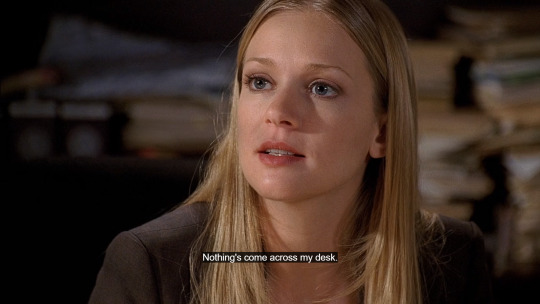
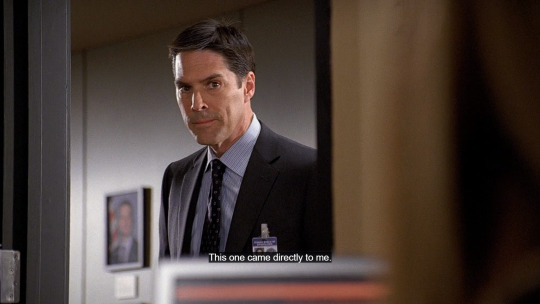
jj's reaction shows it isn't common for hotch to go above jj when choosing cases

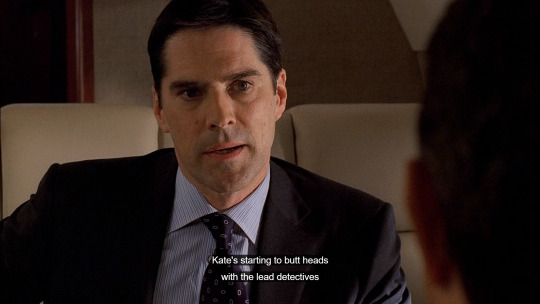
again, very casually speaking of her, calling her kate only

the apparent common knowledge is that she's a brit but

hotch not only knows she has a dual citizenship, but also which parent is british and which one is american
AND MY FAVORITES



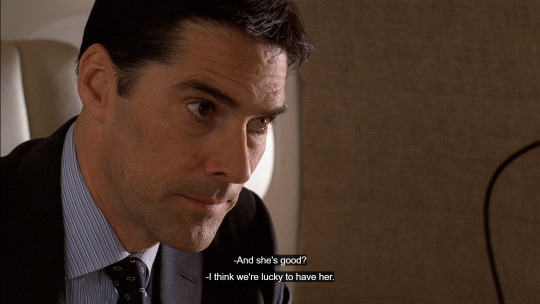
IT ONLY GETS BETTER FROM HERE ALRIGHT
LETS GO
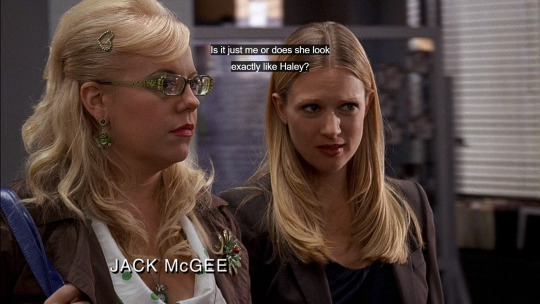
why say that if not to imply hotch has interest in her because she looks like his ex wife who he recently divorced (not willingly !)
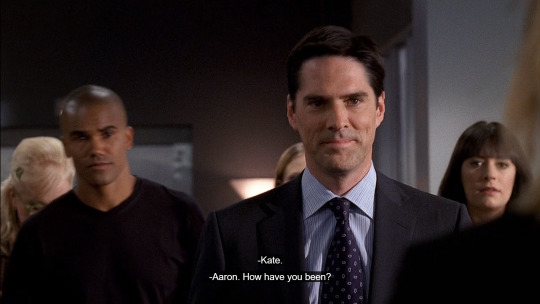
AGAIN WITH THE FIRST NAMES! she doesnt call him hotch ONCE. its aaron, from the start. and HIS SMILE. LOOK AT THIS FUCKER'S FACE
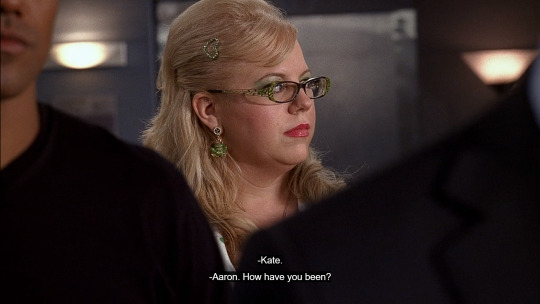
garcia's reaction to the informality
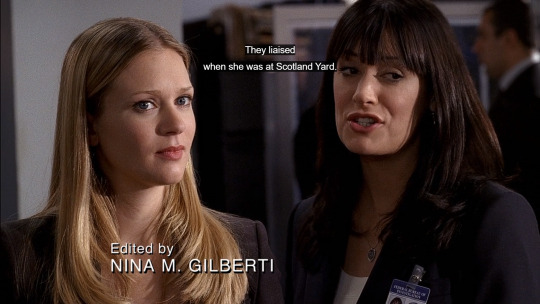
now why would emily use this tone if it was to imply hotch is a CHEATER???
no thats the "oh they ARE fucking" tone

this is sort of a reach because hotch worries about everyone he works with but STILL, going from "i know her because we liaised" to this--i rest my case

then this, i didnt think too much of it because hotch can be a bit of an ass with protocol and hierarchy whateverrrr BUT

emily was sooo uncomfortable which shows in fact that wasnt normal behavior

WHY SAY THAT IF THE TWO OF THEM WERENT OBVIOUSLY FUCKING !!!!
is that it? obviously not, i am in fact INSANE so
4x1


THE FLIRTY EYES AND SMILES

AGAIN. HE DOESNT CALL HER JOYNER. NOT EVEN ONCE. KATE. AT ALL TIMES.
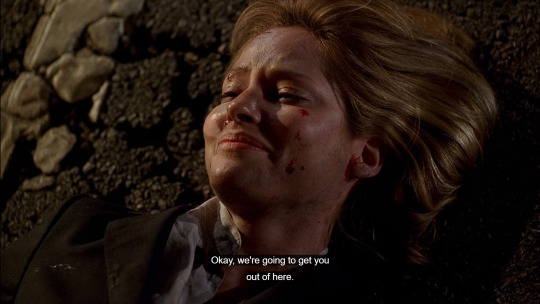
THIS WOMAN IS DYING AND LOOK AT THE WAY SHES SMILING AT HIM AFTER SAYING SHES NOT IN PAIN very allison dying in the arms of her first love coded

another detail i like to point out is that aaron is completely capable of walking rn, he could easily walk over to the end of the street to talk to one of the officers there but he just wouldnt, couldnt, leave her alone.
he knows the first responders wont get near them yet, he keeps BEGGING that someone does
and now for my final argument

the way he holds her hand by the ending before putting it back in place
NOW I REST MY CASE
171 notes
·
View notes
Text
“Screaming at Paul Hollywood, a man who’s [sic] job is cooking, being shocked by the mystical magical never been used before flavour of … gochujang,” said one viewer. “How come paul hollywood couldn’t pronounce ‘taco’ and has never heard of gochujang but kept calling it ‘choritho,’” asked writer Claire Carusillo. The old-fashioned nature of TheGreat British Baking Show — watch these bakers of varying skills finagle their way through traditional English recipes with bits of flair — once felt like a perk rather than a flaw, but the show’s dedicated audience is growing frustrated with the judges’ dated tastes. . . . A disastrous “Vegan Week”–themed episode from series nine had both judges confused about the taste of nutritional yeast, though neither balked at the tofu-and-soy-milk ice cream Giuseppe Dell’Anno fed them in the “Free-From Week”–themed episode of series 12. While the show seems to sneak in challenges that celebrate alternative ways of eating and cooking, watching the judges engage and evaluate those foods feels a bit like watching them eat a plate of broccoli: They chew and swallow, brows furrowed, with little enjoyment. . . . For one, the Baking Show participants and audience have come to know these judges’ flavor preferences like the back of their hand —Leith likes booze, Hollywood doesn’t like peanut butter, and both show disinterest in the “grassy” flavor of matcha — and adjust their recipes accordingly. When Georgie Grasso cooked a rather traditional Bakewell tart in Pastry Week’s signature challenge this season, the judges fawned over her adherence to convention. Sure, a standard dessert baked right can be a treat, but the bakes are intended to be personalized. (And other contestants, like Gill Howard and her chocolate-hazelnut profiteroles, have been downgraded for playing it safe.) For a show that has evolved to reward and encourage spectacle in design and originality in lieu of “how things are done,” there ought to be one evaluator who can represent that. What Baking Show instead increasingly feels like is trying to pick out a movie to show your parents and hoping the final choice doesn’t offend anyone.
What this piece should say and doesn't, is that all of this is because Bake Off is inherently British in its structure and approach. Where other cooking shows require judges to have diverse palettes and wide ranging experience with ingredients in order to be able to judge dishes based on ingenuity, creativity, and an understanding of flavors and textures, the judges on Bake Off are there to be paternalistic authorities to be catered to. They and their judgment are at the center of the show, not the food, or the bakers themselves. It's very telling that when the show moved to Channel 4, the language around judging changed from "the bakers will now be judged on their bakes" to "the bakers will now face the judgment of Prue and Paul" with the onus being on the judge's opinions, not the bakers' skill.
It's inherent to the Britishness of the show that there's a constantly reinforced social hierarchy in which the judges are at the top and the bakers must vie for their approval in an almost servile way; it's even more inherently British that the judges' approach to their job is to expect the bakers to cater to their personal tastes, not to expand their own palates - and that if they ever do, like when Paul went to Mexico to try new foods and brought ideas back for Mexican week, they still don't understand basic flavors let alone how to pronounce the names of ingredients and dishes correctly, and use their experience to lob condescending remarks to working class contestants who've never had the same opportunities, instead of offering knowledge and insight.
The same mindset of paternalistic classism that informed British colonialism for centuries is clearly apparent in Bake Off: this is why what sets it apart from other cooking competition shows is the judges' limited palate being forced on a group of middle and working class contestants who vie for the Hollywood Handshake and gear their recipes towards the judges' taste instead of their own creative impetus. Bake Off used to be a nice, innocuous show that set itself apart from the rest because it was about learning and support. It changed not just because Channel 4 wanted to imbue it with more tension (by tightening task schedules and extending the tension soundtrack to meet the needs of extended sequences in which bakers are panicking). When the show began to venture outside the confines of traditional British baking to more modern and international ingredients and flavors, it pulled back the curtain on how out of their depth the judges were, and what resulted was the current dynamics because of an unwillingness to learn and an insistence on enforcing class dyanmics.
38 notes
·
View notes
Text

The Proposal (The Marquis and Griselda)
Artist: Frederic George Stephens (British, 1827-1907)
Date: c. 1850
Medium: OIl on canvas
Collection: TATE Britain
Description
Like many Pre-Raphaelite works, The Proposal critiques the hierarchy of rich and poor, and explores love across social classes. In this scene from Chaucer’s Canterbury Tales, a nobleman has put Griselda through trials, but she has taught him kinder ways. She thinks about her future. The open window suggests she will leave her father’s cottage. The Proposal is the only surviving complete painting by the Pre-Raphaelite painter Frederic Stephens. Griselda was modelled by the artist Elizabeth Siddal.
#painting#genre art#proposal#fine art#oil on canvas#canterbury tales#literature#griselda#pre raphaelite movement#kneeling#standing#interior#frederick george stephens#british painter#chickens#men#woman#table#garden#window#door#literary scene#oil painting#european art#geoffrey chaucer#english literature#artwork#19th century painting#19th century art
44 notes
·
View notes
Text
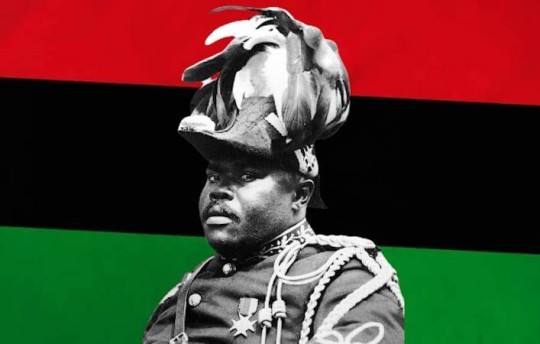
Anti-Blackness Among Non-Black People of Colour: A Garveyite Perspective on Global Patterns of Oppression
From a Garveyite lens, the history and present-day behavior of non-Black people of color (POC) reveal a global pattern of anti-Blackness, glorification of whiteness, and opportunistic use of Black people and their struggles when it suits their interests. This phenomenon spans North America, Europe, South America, and the African diaspora, rooted in the legacy of colonialism and white supremacy. Marcus Garvey’s teachings on Black self-reliance, Pan-Africanism, and racial pride provide critical insights into the ways in which these dynamics have evolved and persist.
Historical Roots of Anti-Blackness in POC Communities
Colonial Hierarchies and Racial Divides
Colonialism established global racial hierarchies that placed Black people at the bottom. Non-Black POC, while oppressed, were often granted privileges over Black people in exchange for complicity in white supremacy.
1. South Asians in Africa
During British colonial rule, South Asians were brought to East and Southern Africa as indentured labourers and intermediaries in the colonial administration. Positioned above Black Africans, they internalized and perpetuated colonial anti-Black stereotypes, benefiting economically and socially.
2. Arab Slave Trade
Predating European colonialism, the Arab slave trade dehumanized millions of Africans, embedding anti-Blackness in Middle Eastern and North African (MENA) cultures. This legacy persisted under European colonial rule, as MENA communities often aligned with whiteness to maintain their status.
3. Latin America’s Caste System
Spanish and Portuguese colonial powers created rigid racial hierarchies, placing lighter-skinned mestizos above Black and Indigenous peoples. Afro-descendants were relegated to the bottom, excluded from political, economic, and social advancement.
4. East Asia’s Encounter with Whiteness
In East Asia, European imperialism introduced the glorification of whiteness and the stigmatization of darker skin. This colorism remains a key factor in anti-Black attitudes within East Asian communities worldwide.
Modern Anti-Blackness Among POC in North America
Economic Exploitation and Social Distancing
Non-Black POC in North America have historically sought proximity to whiteness by distancing themselves from Blackness.
1. Model Minority Myth (Asian Americans)
The model minority stereotype positions Asian Americans as hardworking and law-abiding, contrasting them with anti-Black stereotypes of laziness and criminality. This myth not only erases systemic racism against Asian Americans but also reinforces anti-Blackness by pitting communities of colour against each other.
2. Latino Communities
While Latinos have faced their own struggles against racism, anti-Blackness is deeply ingrained in many Latin American cultures, often carried into the U.S. Afro-Latinos are frequently erased, and lighter-skinned Latinos receive greater societal acceptance. Additionally, many Latino communities participate in cultural appropriation of Black music, fashion, and slang while ignoring systemic anti-Black racism.
3. Arab and South Asian Communities
In North America, Arab and South Asian immigrants often establish businesses in predominantly Black neighborhoods but fail to invest in or support the community. These businesses profit from Black consumers while perpetuating anti-Black stereotypes and refusing to hire Black employees.
Anti-Blackness in Europe
Historical Context
Europe’s colonial history directly shaped its current racial hierarchies. Non-Black POC in Europe have long been complicit in anti-Blackness to gain acceptance in predominantly white societies.
1. South Asians in Britain
Post-WWII, South Asian immigrants in Britain often distanced themselves from Black communities to assimilate. Anti-Black prejudices from colonial India were reinforced in Britain, as South Asians sought to align themselves with white society.
2. Middle Eastern and North African (MENA) Communities
In France, Italy, and other European countries, MENA immigrants have perpetuated anti-Blackness while facing their own struggles against Islamophobia and xenophobia. This dynamic highlights the complexity of racial hierarchies, as MENA communities simultaneously resist and uphold white supremacy.
3. Eastern Europeans and Anti-Black Stereotypes
In many parts of Europe, Eastern European immigrant communities, despite facing discrimination themselves, have adopted and perpetuated anti-Black stereotypes, particularly in public discourse and employment practices.
Economic Exploitation in the UK
One glaring example is the domination of the Afro-cosmetics industry in Britain by South Asian and Middle Eastern shop owners. These businesses profit from Black women, the primary consumers of Afro hair products, while exhibiting dismissive or disrespectful attitudes toward their clientele. Black entrepreneurs attempting to enter the market face systemic barriers, as non-Black POC control the supply chains.
Anti-Blackness in South America and the Caribbean
Erasure of Afro-Descendants
In countries like Brazil, Colombia, and Venezuela, Afro-descendants constitute significant portions of the population yet remain politically and economically marginalized.
1. Colourism and Whitening Policies
Many South American countries implemented “whitening” policies in the 19th and 20th centuries, encouraging European immigration to dilute Black and Indigenous populations. This legacy persists in cultural and media representations that glorify whiteness and exclude Afro-descendants.
2. Appropriation of Black Culture
Samba, capoeira, and other Afro-Brazilian traditions are celebrated globally, yet Afro-Brazilians themselves are often excluded from economic and social opportunities.
3. The Caribbean
In the Caribbean, divisions between Afro-Caribbean and Indo-Caribbean communities have been exacerbated by colonial histories. Indo-Caribbean communities have at times sought to align themselves with whiteness to gain privileges over Afro-Caribbean populations.
The Diaspora: Global Exploitation and Appropriation
1. Co-Opting Black Struggles
In multiracial coalitions, non-Black POC often tokenize Black leaders to gain visibility while sidelining Black-specific issues. Non-Black POC frequently appropriate Black-led movements, such as Black Lives Matter, to amplify their own struggles while failing to address anti-Blackness within their communities.
2. Cultural Appropriation
Black music, dance, and fashion are consumed and commodified by non-Black POC without acknowledgment of their origins or the systemic racism faced by Black creators.
3. Political Opportunism
During elections or social movements, non-Black POC often appeal to Black communities for support but fail to reciprocate when Black issues are on the line.
Garveyite Solutions to Anti-Blackness
From a Garveyite perspective, the solution to these dynamics lies in Black self-reliance, economic independence, and Pan-African unity.
1. Economic Empowerment
Support Black-owned businesses and entrepreneurs to counteract the exploitation by non-Black POC. Establish Black-controlled supply chains, particularly in industries like beauty and retail.
2. Reject False Solidarity
Critically evaluate multiracial coalitions and alliances, ensuring that Black interests are not co-opted or sidelined. Demand accountability from non-Black POC for perpetuating anti-Blackness.
3. Pan-African Unity
Strengthen connections between Black communities globally to resist systemic oppression. Reclaim African identity and culture, rejecting the glorification of whiteness and internalized anti-Blackness.
4. Education and Advocacy
Raise awareness about the history and persistence of anti-Blackness in non-Black POC communities. Promote Garveyite principles of Black pride, self-reliance, and liberation.
Conclusion
Anti-Blackness among non-Black POC, rooted in colonial histories and perpetuated through modern economic, cultural, and social practices, remains a global issue. From North America to Europe, South America, and across the diaspora, non-Black POC have sought to align themselves with whiteness while exploiting Black people when convenient. Marcus Garvey’s vision offers a powerful framework for resisting these dynamics, emphasizing the need for Black self-reliance, unity, and liberation.
“Up, you mighty race, accomplish what you will!” – Marcus Garvey
#black people#black history#black#black tumblr#blacktumblr#pan africanism#black conscious#africa#black power#black empowering#garveyite#marcus garvey#garveyism#antiblackness#poc#people of color#bame#economic independence#colonialism#minorities#north america#Europe#south america#allies#allyship
27 notes
·
View notes
Text

In the heart of the ancient Achaemenid Empire, a masterpiece of Persian artistry emerges—a rhyton (drinking horn or in the shape of a horn) carved from the deep blue lapis lazuli and adorned with gold, taking the form of a majestic ibex (mountain goat).
Dating back to the 6th to 5th century BCE, this exquisite ceremonial vessel not only exemplifies the sophisticated craftsmanship and rich symbolism of the time but also provides a fascinating glimpse into the cultural and economic prowess of ancient Persia.
[Description and Material]:
*Material:
Lapis lazuli, a semi-precious stone prized for its deep blue color, was highly valued in ancient Persia and sourced primarily from what is now Afghanistan.
*Form:
The rhyton is shaped like an ibex, a type of wild goat with prominent, curved horns, reflecting the importance of nature and animal motifs in Persian art.
[Use]:
*Function:
A rhyton is a type of vessel typically used for drinking or pouring liquids, especially in ceremonial contexts. The liquid would be poured from the top and flow out through the spout, which could be the mouth of the animal in this case.
*Ceremonial Role:
Rhytons were often used in religious and royal ceremonies. The choice of lapis lazuli and the intricate craftsmanship suggest that this particular rhyton was likely used by the elite, possibly in rituals associated with the Zoroastrian religion or royal banquets.
[Cultural and Historical Significance]:
*Art and Symbolism: The ibex design reflects the importance of wildlife in Persian culture and the symbolic use of animals in conveying power and divinity. The ibex, with its strong and agile form, could symbolize qualities such as strength and resilience.
*Trade and Wealth: The use of lapis lazuli indicates extensive trade networks and the wealth of the Achaemenid Empire, as this material was not locally sourced and had to be imported.
*Royal Patronage: The Achaemenid rulers were great patrons of the arts, and such luxurious items underscore their desire to display their wealth, power, and cultural sophistication.
[Academic Perspective on Material Culture]:
*Cultural Synthesis:
Scholars often view Achaemenid art, including rhytons, as a synthesis of various cultural influences, including Mesopotamian, Egyptian, and Greek, reflecting the diverse and cosmopolitan nature of the empire.
*Representation of Power:
Academics see these artifacts as representations of royal propaganda, showcasing the divine right and grandeur of the Persian kings.
*Symbol of Status:
In material culture studies, such high-quality items are considered symbols of social status and wealth. They provide insights into the social hierarchy and economic conditions of the time.
*Artistic Techniques:
The craftsmanship of the rhyton is analyzed for its artistic techniques, such as carving and polishing lapis lazuli, which indicate advanced skills and aesthetic values.
[Notable Examples]:
Museums and Collections: Notable examples of such rhytons can be found in major museum collections, such as the British Museum and the Louvre, where they are studied and displayed as prime examples of Achaemenid artistry and craftsmanship.
In conclusion, the lapis lazuli rhyton in the shape of an ibex from the Achaemenid period is a significant artifact that illustrates the artistic, cultural, and economic aspects of ancient Persia. It serves as a key piece of material culture, providing valuable insights into the ceremonial practices, trade networks, and socio-political dynamics of the Achaemenid Empire.
#ancient Persia#Zoroastrianism#ceremonial vessel#rhyton#lapis lazuli#Iran#Mesopotamia#Ancient history#Near East#ancient civilisations#ancient art#ancient craft#archaeology#Achaemenid#Achaemenid Culture
67 notes
·
View notes
Text
It’s Remembrance Day and well… it’s happening again.
Fragile men on the internet are claiming the rainbow poppies are “disrespectful” to those who died in the Great War etc. Followed by the comparison of a gay man voguing at Pride to soldiers going over the top. Yet this is not just a half-baked attempt to mask homophobia. It also displays a fundamental lack of knowledge about the history of the world wars. Especially that of queerness in the trenches.
Though the Edwardian period is famed for its restrictive attitudes to homosexuality, class and gender, some of our most famous poetry, art and film has been made by or has taken inspiration from real life LGBT+ individuals living and active between 1900 to 1919.
The famous names are visible because of the efforts made by historians to map their personal lives. But other queer people existed alongside them even if they had nothing to their name. We do not know about them because Imperialist might, particularly in a time of active war, insisted on the erasure of gay lives. It was a culture that could brook no vulnerability, in which macho stereotypes and feminine domestic tropes were key to the very emblem of Britain, where the queering of empire was a subversion not to be tolerated. To say it’s “old fashioned to be blending national symbolism with colonialism and traditional hetero-masculinity (to declare that the two were powerful and sacred to Great British Values) is an understatement.
That being said, Britain is still grappling with its Imperial history and military future in a fast changing world. Ideas around what it means to be a man or a woman are changing as well as attitudes towards sexual expression, peace and social hierarchy and rightly so. Many Britons may feel they live in the shadow of the “good old days”, with a sense of bitterness that comes from a sense of not belonging to the now and the fear of losing power.
It is natural to be wary of what we don’t understand. But we must adapt rather than default to hatred and bigotry.
Lest we forget the LGBT+ individuals who were sacrificed in an unjust war and also those who did what they could to prevent losses and aid their fellow person. We can’t let history forget them.
35 notes
·
View notes
Text
Me: writing fanfiction about people who live in space 10,000 years in the future.
My search history: Dance card etiquette When did the social season begin? How do you dance a quadrille? Naval ranks 19th century missionary societies Ecclesiastical hierarchy British interwar slang
60 notes
·
View notes
Note
What wad Dennis’ political views?
listen 'ere. im not that educated in the subject, but i will try my best to explain it in the way i understand it. i will use this paragraph from brian masters' book on dennis' case, which i think sums it all up concisely.

in simple words, left wing politics are about the political ideologies that support— and seek to achieve, social equality. often in opposition to social hierarchy (social classes). contrary to the right wing, we are talking about the liberal side. however, the term radical left-wing is usually associated with many varieties of anarchism and communism.
the trade union in britain, basically, is an organization of workers. their purpose is to maintain or improve the conditions of their employment, whether it's their wages, working conditions, benefits, etc. there's a few paragraphs on masters' book on the subject.

"militant attitudes" refers to the militant tendency, which was a group in the british labour party. what is it about i'm not so sure, but it had to do with socialism.
anyways, he was very stubborn when it came to political matters. dennis was an advocate of his own beliefs on these subjects, often getting in trouble at work for behaving problematically.
so, yea. i hope this bad explanation answers your question, somehow. ♡
16 notes
·
View notes